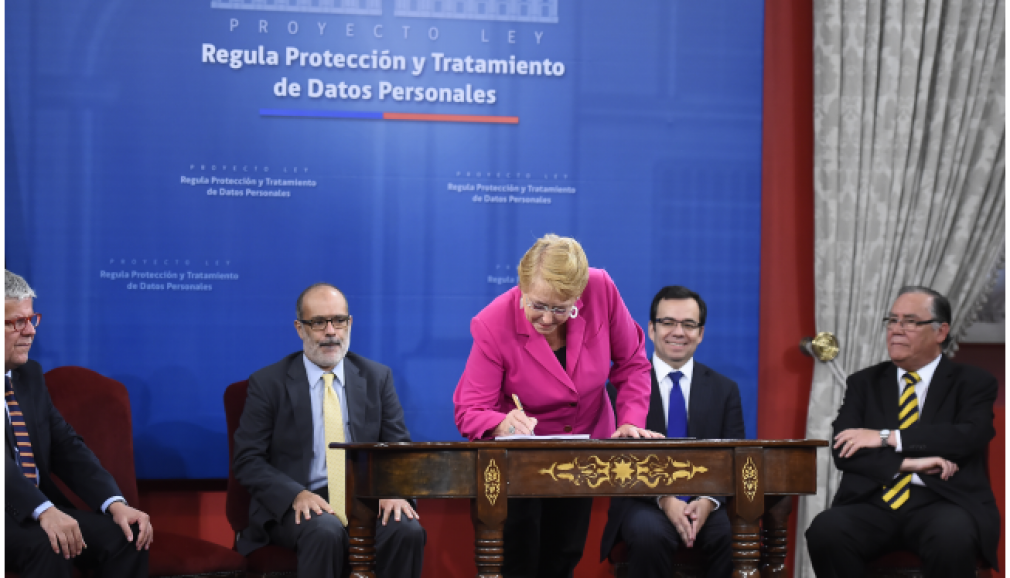
Essential information

President Bachelet signs bill to regulate protection of personal data

The bill establishes that personal data can only be used with the individual’s consent or for purposes expressly indicated by law. It would also create a Personal Data Protection Agency to which individuals would be able to appeal if they consider their rights have been infringed.
This morning, President Michelle Bachelet signed a bill to regulate the protection and treatment of personal data. The signing took place at an event also attended by Finance Minister Rodrigo Valdés, Minister for the Presidency Nicolás Eyzaguirre, Economy, Economic Development and Tourism Minister Luis Felipe Céspedes and Justice and Human Rights Minister Jaime Campos. The bill modifies the terms of Law N° 19.628 on the Protection of Private Life, which came into force in August 1999, and is one of the commitments entered into by the government under its Probity and Transparency in Business and Politics Agenda.
The bill establishes seven principles for the treatment of personal data: lawfulness in accordance with which personal data can only be used with the consent of the individual or as indicated by law; purpose, according to which it can only be used for the ends specifically indicated; proportionality; quality, responsibility; security; and information.
On this basis, the bill also establishes four “ARCO” rights – Access, Rectification, Cancellation and Opposition to use – which will be personal, non-transferable and inalienable and cannot be restricted or limited.
In addition, it regulates the sharing or cession of personal data, specifying the cases in which this is permitted and the duties of the two parties. It also envisages a special statute for the protection of sensitive data such as that related to health, biometrics and geolocation and the data of children and adolescents.
Under the bill, a Personal Data Protection Agency would be created to which individuals would be able to appeal if they consider their rights have been infringed. The Agency would be a decentralized body, with its own legal status and assets, headed by a director appointed through the Civil Service System.
Source: President’s Press Office







